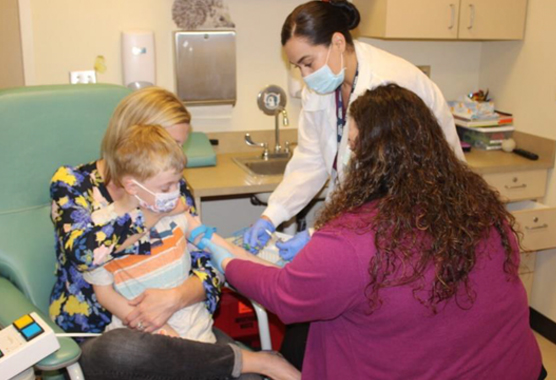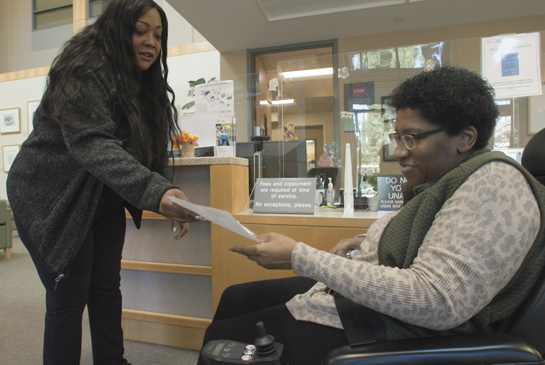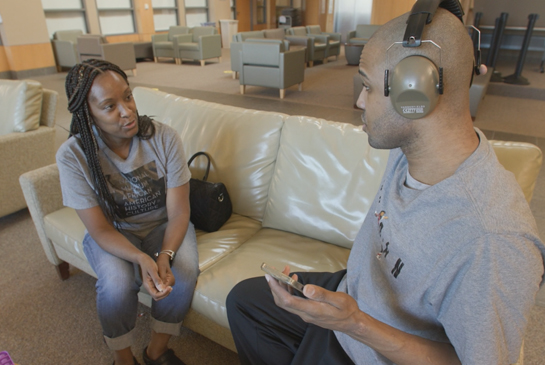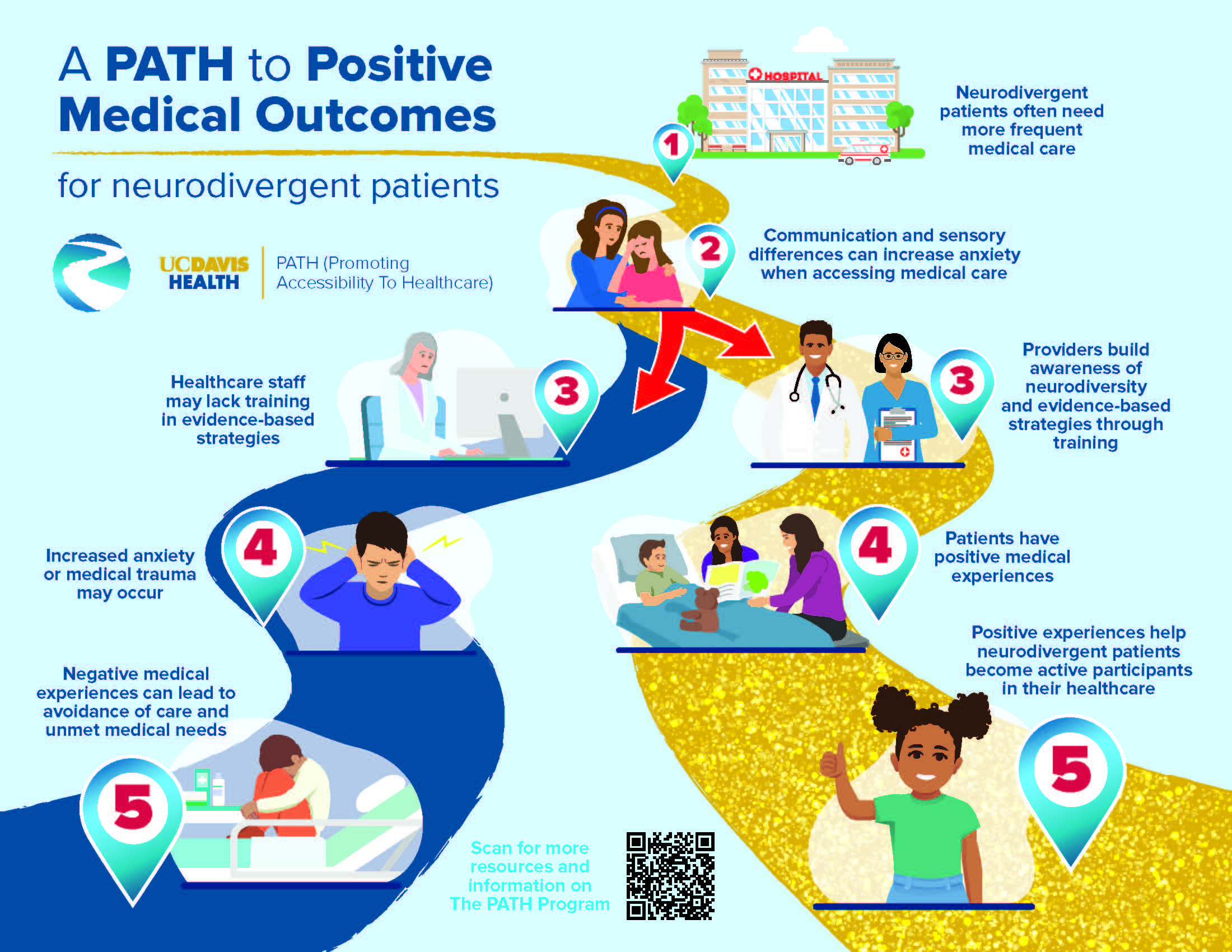Promoting Accessibility To Healthcare
Improving health care experiences for neurodiverse children and their families.

Promoting Accessibility To Healthcare
The PATH Program (Promoting Accessibility To Healthcare) is funded by the Children’s Miracle Network and helps make healthcare easier and better for neurodiverse children and their families. The program is creating and testing new ways to provide patient-centered, inclusive care in two areas at UC Davis Health: the Children’s Surgery Center and Glassrock Lab.
-
Introduction to the Promoting Accessibility To Healthcare (PATH) Program
Introduction to the Promoting Accessibility To Healthcare (PATH) Program
Patients with autism and other neurodevelopmental differences often have special healthcare needs. The PATH Program at UC Davis Children’s Hospital and the UC Davis MIND Institute works to make hospital visits, surgeries, and blood draws easier and more comfortable for autistic and neurodiverse patients.
-
PATH: Patient and family perspectives
PATH: Patient and family perspectives
Patients with autism and other neurodevelopmental conditions often have special healthcare needs. The PATH Program at UC Davis Children’s Hospital and the UC Davis MIND Institute is working to make hospital visits, surgeries, and blood draws easier and more comfortable for autistic and other neurodiverse patients. This video explains why that matters. Neurodiverse patients and their families share their experiences and offer ideas on how to make healthcare visits better for everyone.
-
Why did the PATH Program Start?
- Autistic individuals have 4x higher rate of unmet health care needs
- Individuals with autism and intellectual disability have even higher unmet healthcare needs and poorer-quality care
- Greater recognition of neurodiversity and evidence that appropriate, patient-centered interventions can decrease medical trauma and improve participation in healthcare
- Better understanding of impact of repeated medical trauma on neurodiverse individuals
- Neurodivergent individuals have higher healthcare utilization, but experience more unmet health care needs
- Limited training about neurodiversity for many healthcare providers
- Healthcare costs are more than 4 times higher for neurodiverse patients (Matin et al. 2022)
- Little training is provided for working with patients with intellectual disability or other neurodiverse conditions
Karpur, et al. Health Disparities among Children with Autism Spectrum Disorders: Analysis of the National Survey of Children’s Health 2016. J Autism Dev Disord. 2019 Apr;49(4):1652-1664. doi: 10.1007/s10803-018-3862-9.
Forde, et al. Health Status of Adults with Autism Spectrum Disorder. Rev J Autism Dev Disord (2021)
Menezes M, et al., Unmet health care needs and health care quality in youth with autism spectrum disorder with and without intellectual disability. Autism. 2021 Nov;25(8):2199-2208. doi: 10.1177/13623613211014721.
-
The PATH Program Goals
- Provide safe, supportive and individualized care for neurodiverse children
- Increase knowledge and confidence in caring for neurodiverse children
- Improve clinical spaces, protocols, and training
- Create sensory supports for patients
- Enhance staff expertise for blood draws and vaccinations
-
For more information on the PATH Program or for any questions contact: Katharine Harlan Owens, PATH Patient Navigator, at path@health.ucdavis.edu or call 916-734-4152 for more information.




